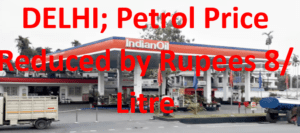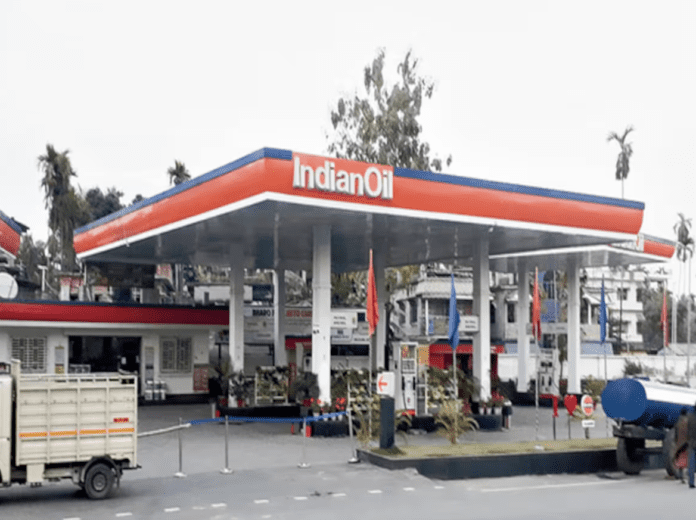Why Petrol and Diesel Prices Experience Fluctuations in India.
2 min read 2023-12-22, 11:50 PM IST
Summary of the Content
- Petrol prices in India crossed Rs 100 per liters in early 2021.
- Sri Ganganagar, Rajasthan, recorded petrol prices at Rs 100.49 per liters.
- Global factors, such as a surge in crude oil prices, contributed to the increase.
- The COVID-19 recovery led to heightened oil demand, impacting global prices.
- 22 price hikes occurred in 2021, resulting in a substantial increase in both petrol and diesel rates.
- Public discussions focused on economic implications, government policies, and the need for diversified energy strategies.

In early 2021, the petrol prices in India surged past the significant Rs 100 mark, a consequence of a substantial spike in global market prices of both crude oil and petroleum products. This surge was notably observed in Sri Ganganagar town in Rajasthan, where the regular petrol price soared beyond Rs 100 per liters, settling at Rs 100.49 per liters during the second week of February 2021. Throughout the year, there were a total of 22 price hikes in petrol and diesel, leading to an overall increase of Rs 6.17 and Rs 6.40 per liters, respectively, by the same period.
ALSO READ| Diya Kumari of BJP Blames Congress for Lack of Development in Rajasthan Over the Past Five Years.
The unprecedented rise in fuel prices can be attributed to various factors, prominently influenced by the global oil market dynamics. The intricacies of this surge are rooted in the intricate relationship between international oil prices, production and supply, geopolitical events, and domestic economic policies.
The global market for crude oil witnessed a pronounced upswing during the mentioned period. As nations grappled with the effects of the COVID-19 pandemic, the gradual recovery of economic activities triggered an increase in the demand for oil. This surge in demand, coupled with production cuts implemented by major oil-producing nations, led to a supply-demand imbalance, ultimately propelling crude oil prices upward.
ALSO READ| COVID-19 Cases in India, Sparks Doctor Vigilance.
Furthermore, the prices of petroleum products, including petrol, are intricately linked to the fluctuations in crude oil prices. The refining, distribution, and marketing costs, along with taxes imposed by both the central and state governments, collectively contribute to the final retail price of petrol. The increase in global crude oil prices directly influences the cost of production, consequently affecting the retail prices of petrol in India.
Sri Ganganagar in Rajasthan became emblematic of this global trend as its petrol prices breached the Rs 100 per liters mark. This landmark event sparked widespread discussions on the economic repercussions and public sentiments surrounding escalating fuel prices. It prompted a closer examination of the contributing factors and a reflection on the resilience of the Indian economy in the face of such challenges.
The year 2021 witnessed a series of fluctuations in fuel prices, reflecting the volatility of the global oil market. The recurrent hikes in petrol and diesel rates became a point of concern for the general public and various stakeholders, including industries heavily dependent on transportation and individuals grappling with increased living costs. As the prices soared, discussions intensified on the need for sustainable energy solutions, alternate fuel sources, and efficient policies to mitigate the impact of such fluctuations on the common citizen.
While the surge in fuel prices posed economic challenges, it also spurred conversations about environmental sustainability and the urgent need to explore greener alternatives. The increased cost of conventional fuels encouraged discussions on promoting electric vehicles, investing in renewable energy sources, and implementing policies that align with global efforts to combat climate change.
The government’s role in managing fuel prices became a focal point of public discourse. Calls for transparency in taxation, rationalization of excise duties, and initiatives to insulate the common man from the impact of global market fluctuations gained momentum. The balancing act between economic stability, revenue generation, and public welfare emerged as a critical consideration for policymakers.
Additionally, the impact of rising fuel prices rippled through various sectors of the economy. Transportation costs escalated, affecting the prices of goods and services. Industries reliant on fuel for manufacturing and logistics faced increased operational expenses, necessitating strategic adjustments to maintain competitiveness in the market. These economic repercussions underscored the interconnectedness of various sectors and the need for a holistic approach to address the challenges posed by volatile fuel prices.
As the year progressed, the continued volatility in global oil markets underscored the inherent uncertainties associated with the energy sector. The role of geopolitical events, international conflicts, and the global response to emerging crises became critical determinants of oil prices. The importance of developing resilient and diversified energy strategies gained prominence, emphasizing the need for countries to explore sustainable and self-reliant energy solutions.
In conclusion, the surge in petrol prices in India in early 2021, exemplified by the landmark breach of the Rs 100 per liters mark in Sri Ganganagar, Rajasthan, reflects the intricate interplay of global oil market dynamics, economic policies, and domestic considerations. The recurring hikes in fuel prices prompted widespread discussions on economic resilience, environmental sustainability, and the imperative for comprehensive policies to address the multifaceted challenges posed by volatile fuel prices. As the global energy landscape continues to evolve, the experiences of 2021 serve as a catalyst for reevaluating energy policies, embracing innovative solutions, and fostering a sustainable and resilient energy future.


Outstanding feature